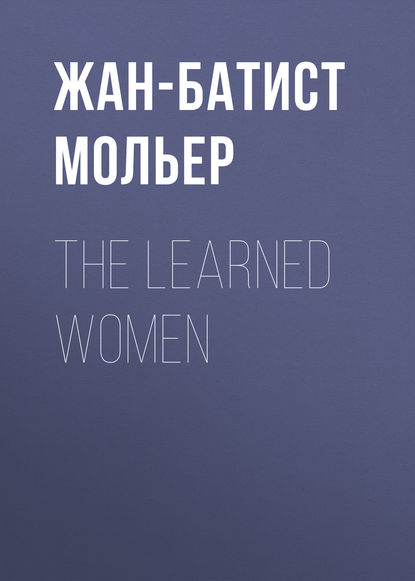По всем вопросам обращайтесь на: info@litportal.ru
(©) 2003-2024.
✖
The Learned Women
Год написания книги
2017
Настройки чтения
Размер шрифта
Высота строк
Поля
CHRY. Heaven be praised!
PHI. I am delighted at heart for the vexation which this cowardly deserter will feel. The punishment of his sordid avarice will be to see in what a splendid manner this match will be concluded.
CHRY. (to CLITANDRE). I told you that you would marry her.
ARM. (to PHILAMINTE). So, then, you sacrifice me to their love?
PHI. It will not be to sacrifice you; you have the support of your philosophy, and you can with a contented mind see their love crowned.
BEL. Let him take care, for I still retain my place in his heart. Despair often leads people to conclude a hasty marriage, of which they repent ever after.
CHRY. (to the NOTARY). Now, Sir, execute my orders, and draw up the contract in accordance with what I said.
notes
1
The sonnet is not of Molière's invention, but is to be found in Les Oeuvres galantes en prose et en vers de M. Cotin, Paris, 1663. It is called, Sonnet à Mademoiselle de Longueville, à présent Duchesse de Nemours, sur sa fièvre quarte. As, of necessity, the translation given above is not very literal, I append the original.The die of quoi qu'on die was the regular form in Molière's time, and had nothing archaic about it. This is sufficiently true of "Will she, nill she" (compare Shakespeare's "And, will you, nill you, I will marry you") to excuse its use here.
2
This epigram is also by Cotin. It is called, 'Madrigal sur un carosse de couleur amarante, acheté pour une dame.'
"L'amour si chèrement m'a vendu son lien
Qu'il me coûte déjà la moitié de mon bien,
Et quand tu vois ce beau carrosse,
Où tant d'or se relève en bosse,
Qu'il étonne tout le pays,
Et fait pompeusement triompher ma Laïs,
Ne dis plus qu'il est amarante,
Dis plutôt qu'il est de ma rente."

















